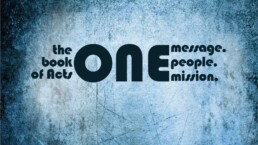Praying Scripture
The Puritans said it was a good practice to "pray God's handwriting back to Him." How can we do that? By memorizing Scripture and praying that Scripture back to God. God loves to see and hear His own words in our prayers.
Tim Kerr, pastor of Sovereign Grace Church Toronto, has put together a booket that categorizes verses of God's promises and intercessory prayers to be memorized for our praying. He writes,
The fuel of an intercessor is the promises of God. . . Attaching God's promises to people and situations is the very backbone of all faith-filled praying.
Get a free download (PDF) of the booklet Take Words With You.
(HT: Desiring God)
Isn't sin more enjoyable?
After some help from wise men & reflection it seems to me that it would be helpful for me to provide some more clarity on the question I posed in the introduction on Sunday: “Why should the non-Christian repent if they are enjoying their sin?”
Sin is death (Romans 6.23a, etc.) therein, what the unregenerate perceive to be joy is in fact death (2 Cor. 4.4). The unregenerate says “well, then, if this is death, then I will take eternal separation from God! Party up!”
Jesus responds very sharply to this exact scenario in Luke 12.16-21 by telling a parable of a man of abundance who concludes that he shall store up all his abundance and “eat, drink, and be merry.” Jesus responds to this man by telling him: “’Fool! This night your soul is required of you, and the things you have prepared, whose will they be?’ So is the one who lays up treasure for himself and is not rich toward God.”
In other words, delighting in self (sin) is the delighting in the finite at the cost of the infinite. Or, to say it differently, living for self is living for that which will die, whereas living for Christ is living for that which has Life eternal (Romans 6.13). This is why sin cannot ultimately satisfy, because it cannot impart true life…its promises cannot fulfill.
Consequently, the return of a life lived for Christ is just that…life. This is because Christ defeated death on the cross and gives us life through the resurrection (Col. 2.13-15).
Based off this understanding of life, we then understand that a life that is NOT Dull is a life that is being lived for true life (Christ), not true death (Sin). The non-believing movie star or world traveler, then, is not nearly as exciting as the house mom or janitor whose life is devoted to Christ and His Kingdom.
Let me conclude by offering an illustration that makes the point. Most fine restaurants offer you bread before your meal and that bread is typically wonderful. We are most tempted to fill up on the bread (and often we do), however the bread is never intended to be the meal, it is only intended to lead you into a more pleasurable meal. No one comes to a fine restaurant only to feast on bread, they want the whole course, and yet that is what those who delight in living for sin & self do…they feast upon bread when they were intended to enjoy a more delectable meal (Christ Himself…the Author of Life).
So the next time you are confronted with someone who thinks there is more joy to be had in sin than there is in a life for Christ, you should pity them, look them in the eye and use the words of the great CS Lewis…”You are far too easily pleased.”
Naturalism
Thanks to all who came out for the Naturalism? event. We hope that you were challenged and equipped to think more deeply about God. It's our prayer that each one of us would love God with all of our heart, soul, mind, and strength.
Audio from the Talk
Many of you asked for a recording of the talk to share with friends, and we are happy to be able to provide that for you. It can be listened to online by clicking here. To download an MP3 version of the talk, right click here, and select 'Save file/link as.'
Resources for Additional Reading
- God’s Undertaker: Has Science Buried God? by John Lennox
- Did Adam and Eve Really Exist?: Who They Were and Why You Should Care by Jack Collins
- “PCA Study Committee Report on Creation”
- Biologos Forum
** Please note the views expressed in these resources are not necessarily those of Restoration Church.**
As we host these types of discussions in the future, we hope that you will continue to join us.
The King & His Kingdom of Life
Nathan Knight concludes Restoration's walk through the book of Acts.
Download this week's study guide.
(The first sermon in this series may be heard here.)
Confess This
Martin Luther:
I believe that Jesus Christ, true God, begotten of the Father from eternity, and also true man, born of the Virgin Mary, is my Lord, who has redeemed me, a lost and condemned creature, purchased and won [delivered] me from all sins, from death, and from the power of the devil, not with gold or silver, but with His holy, precious blood and with His innocent suffering and death, in order that I may be [wholly] His own, and live under Him in His kingdom, and serve Him in everlasting righteousness, innocence, and blessedness, even as He is risen from the dead, lives and reigns to all eternity. This is most certainly true.
Promises
Per the message from this past Sunday, look to God's word for promises to assure you of God's unchanging character in the midst of our changing feelings and circumstances. Comb the Word of God looking for unchanging truths about the person and work of God that you might rest fully in God.
Here is one website that might help you do just that. Below are some verses the highlight the sovereignty of God which should bring us comfort no matter what we are facing.
I know that you can do all things, and that no purpose of yours can be thwarted (Job. 42:2)
For all the promises of God find their Yes in Jesus. That is why it is through him that we utter our Amen to God for his glory. (2 Cor. 1:20)
O LORD, God of our fathers, are you not God in heaven? You rule over all the kingdoms of the nations. In your hand are power and might, so that none is able to withstand you (2 Chron. 20:6)
Great and amazing are your deeds, O Lord God the Almighty! Just and true are your ways, O King of the nations! (Rev. 15:3)
The heart of man plans his way, but the LORD establishes his steps…. The lot is cast into the lap, but its every decision is from the LORD (Pr. 16:9, 33)
Our God is in the heavens; he does all that he pleases (Ps. 115:3)
If God is for us, who can be against us? He who did not spare his own Son but gave him up for us all, how will he not also with him graciously give us all things? (Rm. 8:32)
Your kingdom is an everlasting kingdom, and your dominion endures throughout all generations.
The LORD is faithful in all his words and kind in all his works. The LORD upholds all who are falling and raises up all who are bowed down (Ps. 145:13-14)
For I am sure that neither death nor life, nor angels nor rulers, nor things present nor things to come, nor powers, nor height nor depth, nor anything else in all creation, will be able to separate us from the love of God in Christ Jesus our Lord. (Rm. 8:38-39)
The LORD has established his throne in the heavens, and his kingdom rules over all. (Ps. 103:19)
God has highly exalted Jesus and bestowed on him the name that is above every name, so that at the name of Jesus every knee should bow, in heaven and on earth and under the earth, and every tongue confess that Jesus Christ is Lord, to the glory of God the Father. (Phil. 2:9-11)
Forever, O LORD, your word is firmly fixed in the heavens. Your faithfulness endures to all generations; you have established the earth, and it stands fast. By your appointment they stand this day, for all things are your servants. (Ps. 119:89-91)
I am the Alpha and the Omega, the first and the last, the beginning and the end (Rev. 22:13)
You Can Borrow It, But You Can’t Steal It
From Kevin DeYoung @ TheGospelCoalition:
I have a theory that I’ve made into an aphorism: you can borrow time, but you can’t steal it.
The saying is mainly about sleep. If you have to finish a paper by 8am you can stay up all night to finish it. This may seem like a brilliant move because, after all, what were you going to do with the hours between midnight and 7am anyway? You were just going to waste it in bed. So now your paper is done and all you missed was a night’s sleep.
But all you’ve really done is borrowed time. You haven’t stolen it. Because you stayed up all night on Thursday, you’ll invariably crash on Friday. If not on Friday, then you’ll sleep in an extra five hours on Saturday. If you barely catch up on sleep over the weekend, you’ll likely get sick the next week. If you don’t get sick and you keep pushing yourself on empty, your productivity will slide. Or you’ll get into a car accident because you’re so tired. Or you’ll snap at your friends and cause a relational meltdown. All of which take time. You will have to make up for the seven hours of sleep you missed the week before. In fact, the longer you try to borrow against sleep, the more your body (or God) will force you to pay for those hours plus interest. That one all-nighter might cost you three full days of wasted time after all is said and done.
I recently read an article by a computer programmer about how making sleep a priority makes us more productive. There was nothing deep or spiritual about the post, but I imagine his experience, in general, has been the experience of a lot of folks, even if our details are quite different.
Three years ago I started a company in San Francisco with some friends. I didn’t quit my day job, so this was an after-hours project. We set up an office and established a routine of working from 6 p.m. to midnight. After we started working for the new company full-time, I fell into a classic trap of San Francisco startup culture: I confused work hours with productivity. Somewhere in the back of my mind I knew that working smart was better than working hard, but I convinced myself that I was doing both.
I wasn’t. As a programmer, I averaged 10-12 hours in front of a computer every day and rarely went to bed before midnight. Eventually, I felt dull and unmotivated. When I took two weeks off to travel in Colombia, I spent the first few nights sleeping for 10 hours each. I realized that if there is such a thing as sleep debt, I had accumulated some. I made up my mind to correct my sleep patterns.
I know this is easier said than done, especially for moms and dads with young children. But it would be worth your time (and mine!) to talk to your friends or spouse about how your life might be suffering from constant sleep deprivation. I doubt many of us will be able to solve the whole problem, but I doubt there isn’t something all of us can do to make sleep a higher priority. Less caffeine at night, no internet past 9pm, no t.v. past 10pm, better planning during the day, scheduling your week so that known sleep-deprived nights will be followed with lighter days—whatever little things you can do to pay back your sleep debt will undoubtedly be good for you, your work, your soul, and the ones you love.
The Spiritual Discipline of Sleep
From D. A. Carson's Scandalous:
Doubt may be fostered by sleep deprivation. If you keep burning the candle at both ends, sooner or later you will indulge in more and more mean cynicism—and the line between cynicism and doubt is a very thin one. Of course, different individuals require different numbers of hours of sleep: moreover, some cope with a bit of tiredness better than others. Nevertheless, if you are among those who become nasty, cynical, or even full of doubt when you are missing your sleep, you are morally obligated to try to get the sleep you need. We are whole, complicated beings; our physical existence is tied to our spiritual well-being, to our mental outlook, to our relationships with others, including our relationship with God. Sometimes the godliest thing you can do in the universe is get a good night’s sleep—not pray all night, but sleep. I’m certainly not denying that there may be a place for praying all night; I’m merely insisting that in the normal course of things, spiritual discipline obligates you get the sleep your body need. (147)
HT: Kevin DeYoung


